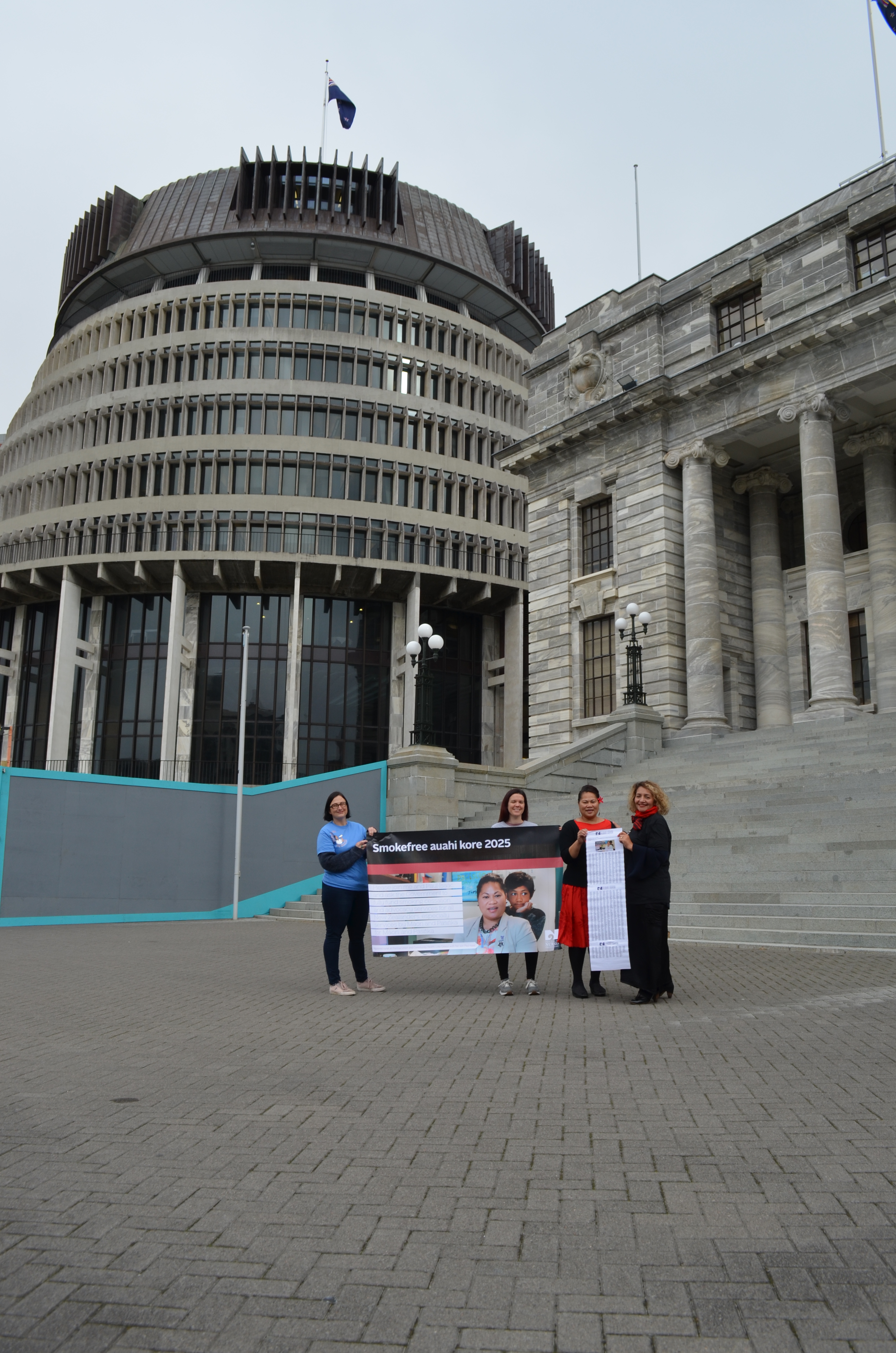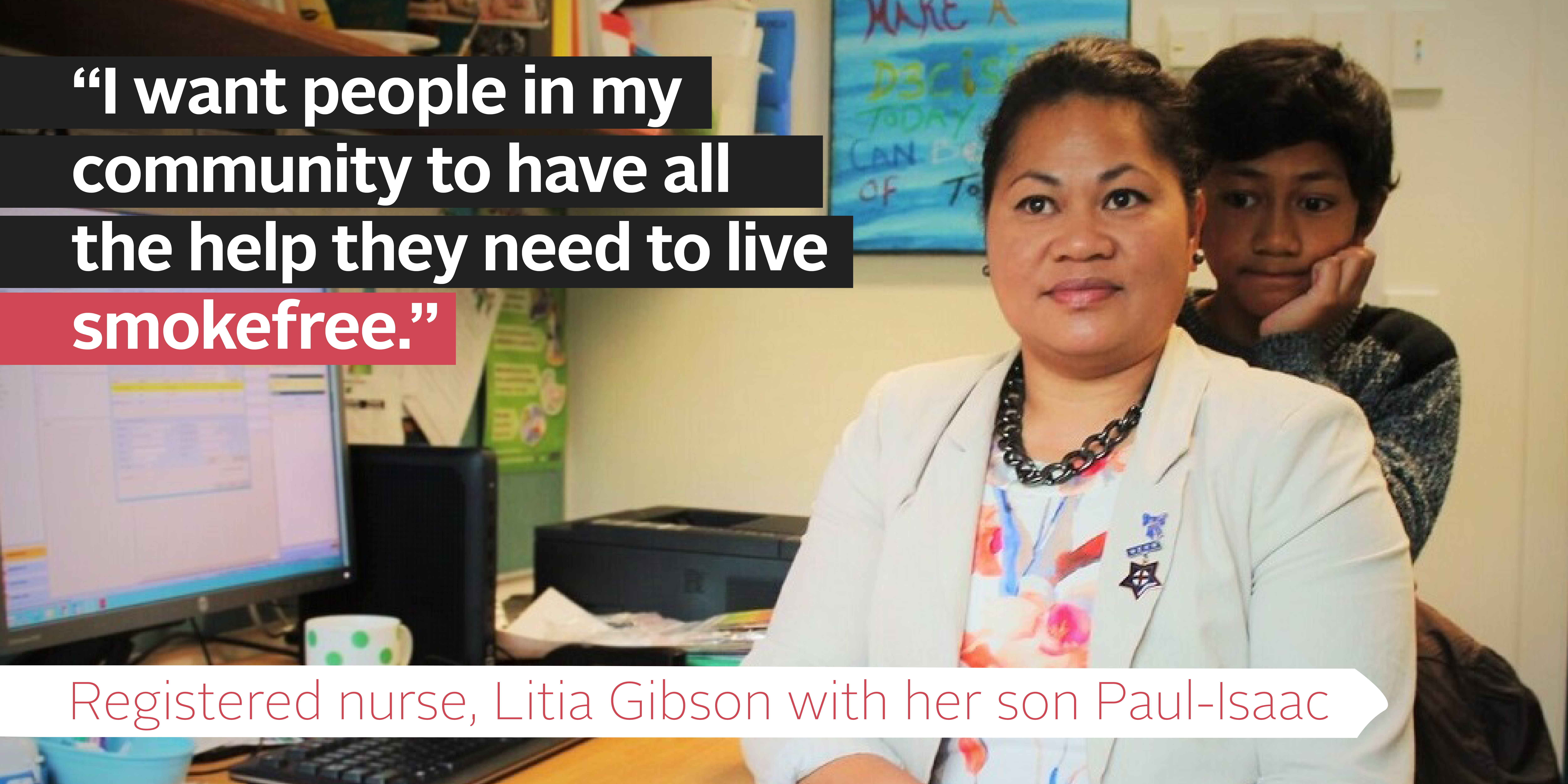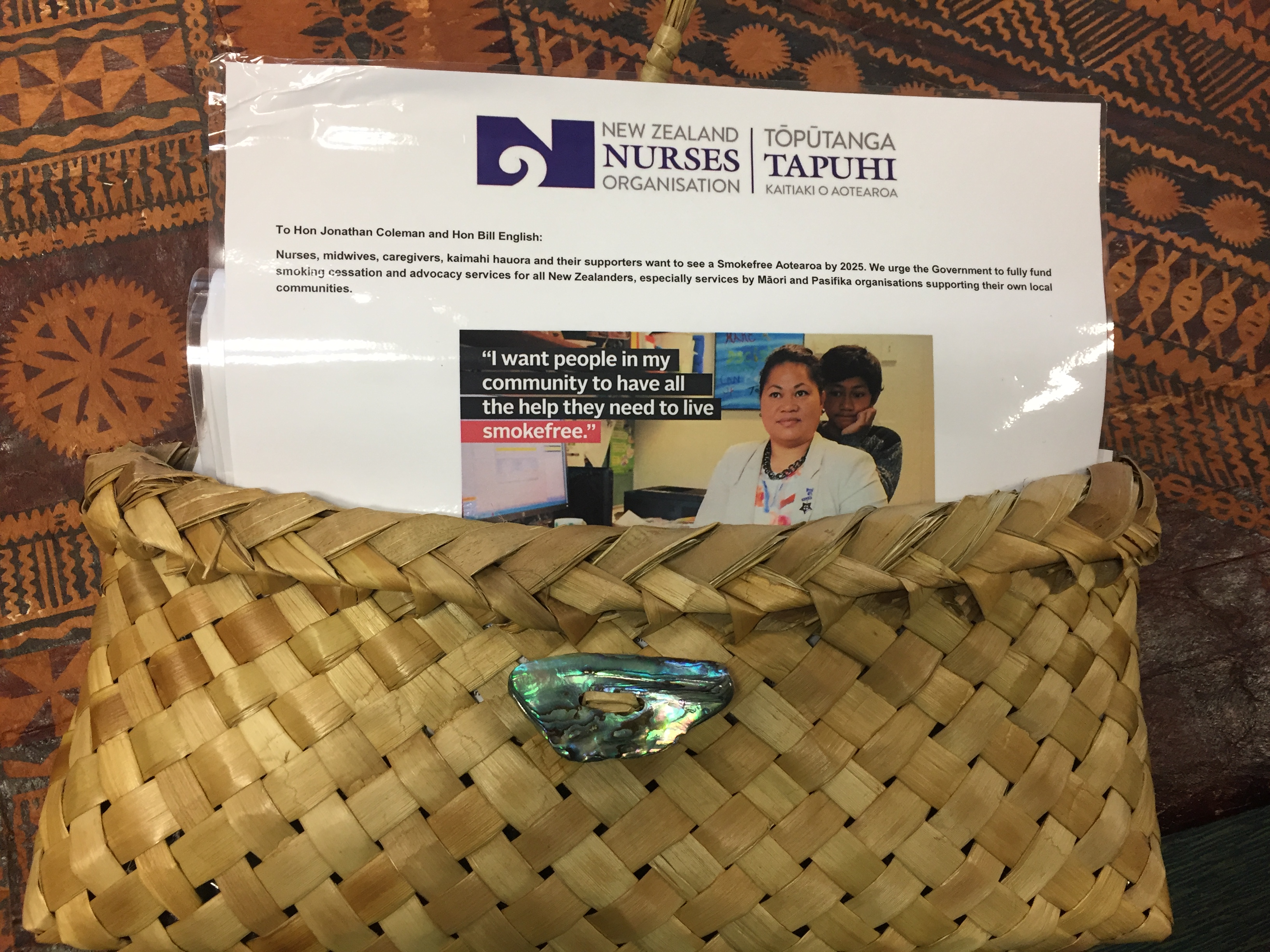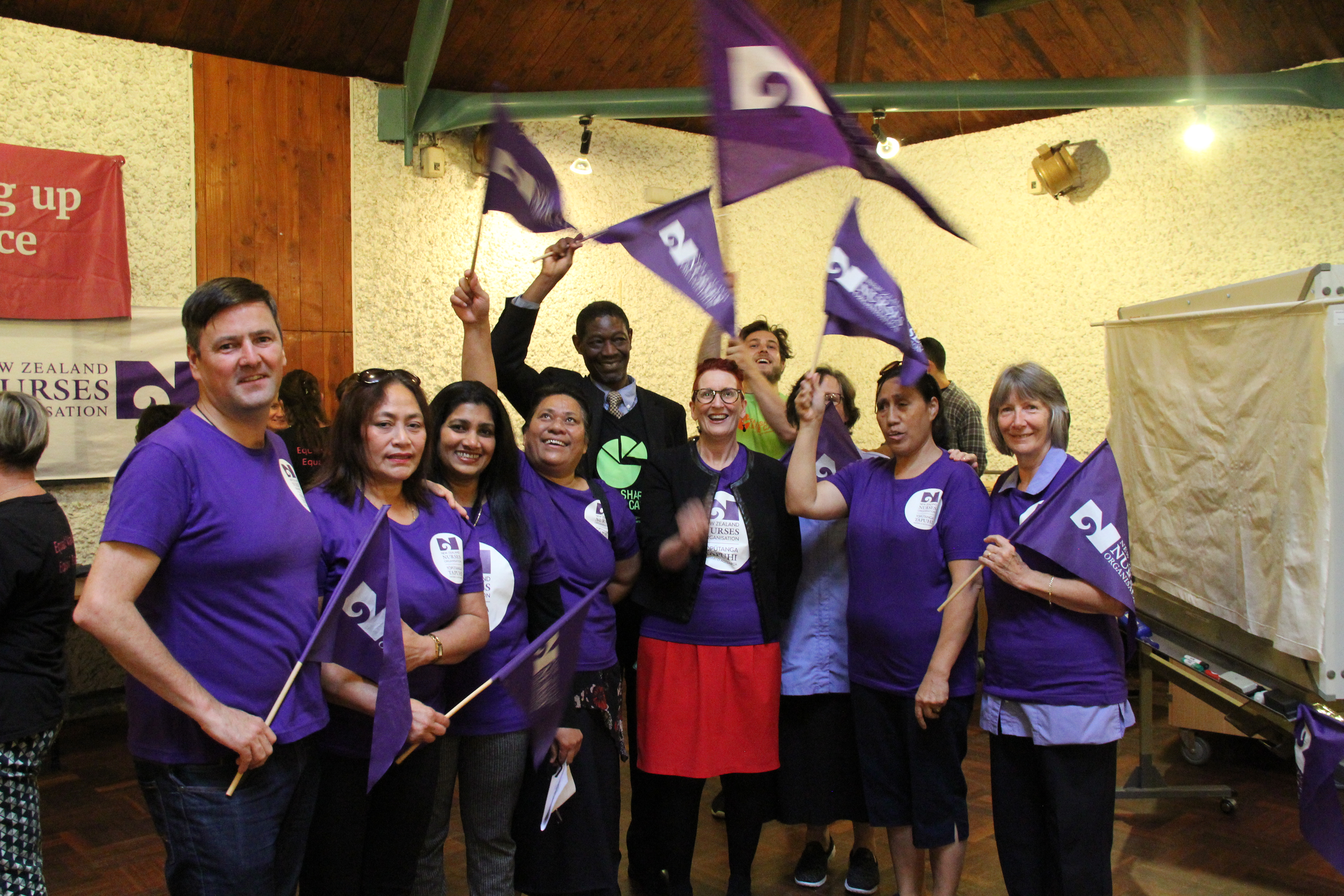Kerri Nuku, Kaiwhakahaere
Tōpūtanga Tapuhi Kaitiaki o Aotearoa NZNO
On 28 February CTU’s youth wing, Stand Up, organised a protest at Parliament against the Government’s all-out assault on Te Tiriti o Waitangi, Te Taiao, and workers. Of all the powerful kōrero from that rally, one stuck out prominently because of its strength and its relevance. It came from Action Station director Kassie Hartendorp (Ngāti Raukawa, Ngāti Tuwharetoa) who hit home exactly what the disestablishment of Te Aka Whai Ora means.
“Te Aka Whai Ora was about life,” she said.
It was about the simple but horrifying fact that Māori die seven years younger than Pākehā. All Te Aka Whai Ora was intended to do was find ways to close that gap so our mokopuna get seven more years with their kaumātua; So we can have seven more years to keep deepening our reo and tikanga; So we can have seven more years living with Ranginui above us, Papatūānuku beneath us, and growing in the universe that our tūpuna fought so hard to deliver us into.
We know in health that equity literally is the difference between living and dying. How can they justify this, knowing that it means people dying too young? This Government intentionally attacks any policy or structure that aims to create equity because they maintain their power through racism and division. And if that means death so be it. They will continue to trample on Māori and as they do they will blame us for the outcomes of the injustice they have created.
But they won’t just blame Māori. They’ll blame women for not being able to earn enough. They’ll blame young people for not being able to keep a job. They’ll blame nurses for not being able to keep up with the demands of tangata whaiora. They’ll use their power and control to try to convince us all that we are responsible of our own exploitation and oppression. Or, of course, they’ll wheel out their favourite tactic: saying that the real reason workers have no power is because Māori are trying to take it.
Yet more and more, people are understanding that this is not the case. The Toitū Te Tiriti movement has seen unprecedented shows of solidarity from Pākehā and tauiwi because people are seeing the restoration of tino rangatiratanga not as a threat, but simply as a matter of justice and equity. As Angela Davis said, “I am no longer accepting the things I cannot change. I am changing the things I cannot accept.” People are standing up and saying they do not accept the idea that Māori are powerless on their own land. They do not accept that Māori will die seven years before Pākehā. And they will not accept the erosion of workers’ rights, nor the destruction of the earth.
This struggle concerns all of us. You must understand that this Government will continue to do all in its power to dismantle everything we have fought so hard for, including the structures that protect you at work. If you see the injustice and cannot accept this reality, then you have a role to play. Together we have the power to change the world. We simply must take the next step and show true leadership, unlike those in Parliament. That means getting organised, talking with each other, and taking our struggle to the streets.










 Excitement at the pay offer settlement announcement for caregivers. Cee is pictured centre in the red skirt in front of Memo Musa, NZNO CE, Grant Brookes NZNO President at left, and NZNO caregiver members.
Excitement at the pay offer settlement announcement for caregivers. Cee is pictured centre in the red skirt in front of Memo Musa, NZNO CE, Grant Brookes NZNO President at left, and NZNO caregiver members.

